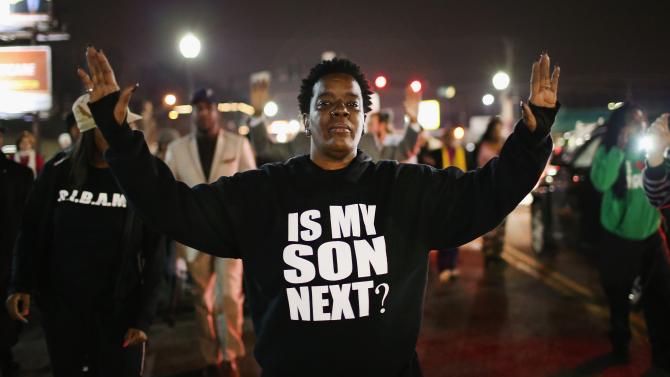No one said it would be easy.
After all, what’s simple about fighting something that’s baked in the cake of American society, that constitutes its original sin?
Racism.
That’s racism with a big R and a little one. The kind that’s in your face and explicit, and the kind that you can’t grasp with your hands, but seems to be in everything from where you live to where you go to school to where you work. Where your whole life seems to be guided by an invisible hand, sorting you in one pile versus another. And fighting that unseen guide is a lifelong battle, like swimming upstream with weights tied to your ankles, desperately trying to get to dry land. The weights of subprime loans and failing schools, mass incarceration and poverty.
It’s not easy to fight those things, and no one expected it to get any easier in the age of Obama.
“The great irony is that the age of Obama is also the great age of retrenchment in civil rights law,” says Alvin Bernard Tillery, associate professor of political science at Northwestern University.
As part of The Root’s monthly series on President Barack Obama’s last year in office, in this installment of His Lasting Legacy, we take a look at the fight for racial justice under the Obama administration. Many who have worked closely with the White House praise it for its accessibility and action even when they didn’t always agree. But Tillery, with an outsider’s eye, is a bit more critical.
The President You Want
Tillery, who says Obama will be remembered overall as a good president, feels his legacy on race will be one that’s long on symbolism and short on action, outlining what sounded like a Faustian bargain of black voters and the civil rights community sacrificing racial progress for high symbolism.
“Black Americans have the President Obama that they sort of want,” Tillery says. “He’s above 92 percent approval rating [in the black community] pretty consistently. I think because black Americans have been so moved by the symbolic victory, what that means psychologically to people seeing a beautiful black first family, that they give him much more leeway on policy than they would give any other president. …
“Imagine President Bush, George W. Bush, saying he couldn’t do something for white evangelicals because it’s polarizing,” Tillery says, pointing out how under Bush, there was a debate about evolution. “[Bush] doesn’t have to do that, but he’s doing that because his evangelical-voter base wanted it.”
Tillery says that instead of being proactive on race, Obama has been “reactive,” and as to why that’s so, Tillery puts the blame back on Obama’s most loyal constituency—African-American voters.
“I know how presidents behave when their main voting bloc asks them to do something,” Tillery says. “We’re celebrating the most powerful man in the world, but [we think] ‘Oh, he’s not really powerful enough to lead on race relations, civil rights.’
“He doesn’t have to sign a[n] executive order for reparations tomorrow … but why hasn’t the president sent another Voting Rights Act to Congress? Of course, it would be dead in the water, but the symbolic act of sending the bill. This is why [Democratic presidential candidates] Sen. [Bernie] Sanders and [Hillary] Clinton are running way to the left of Obama. As white politicians, they realize they won’t be given this slack by black voters in South Carolina.”
Tillery repeats a quote often attributed to the Rev. Al Sharpton that President Obama “can’t lead a march on himself.” It was up to activists, black lawmakers and those in the civil rights community to hold President Obama accountable, but, Tillery says, too many feared looking like they were attacking the man their constituents adored.















